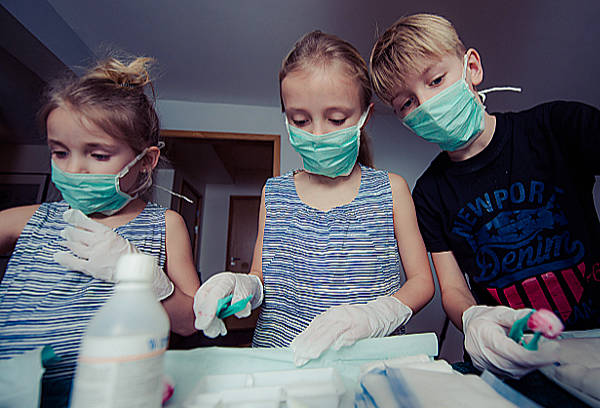
In the United States, more than half of all adults have in our country suffer from one or more chronic diseases that would be preventable proper eating habits and regular exercise. Every five years since 1980, the U.S. Department of Health and Human Services (HHS) and U.S. Department of Agriculture (USDA) has published the
Dietary Guideline for Americans to help citizens adopt and maintain a healthier diet and lifestyle.
Primarily intended for policymakers, nutrition educators and healthcare providers, the report outlines steps to help people improve their overall eating habits.
In the latest report, there are now new national guidelines designed for the unique nutrition needs of pregnant women, lactating moms, infants and toddlers.
One of the key takeaway in the report is how important eggs are as a first food for infants and toddlers, as well as for pregnant women and lactating moms. As a vital source of nutrients for people of all ages, eggs provide several key nutrients important for babies during the time in which their brains are most rapidly developing.
Choline, a nutrient found in large quantities in eggs and now a recommended first food for babies to reduce risk for an egg allergy, has now been recognized as important for brain health.
"Understanding the importance of nutrition in the first years of life builds a foundation for lifelong health and prevent chronic disease."
According to the
American Egg Board, just one large egg provides the daily choline needs for babies and toddlers, and two large eggs provide more than half of daily choline needs for pregnant moms.
The report notes that between 4-6 months of age and when a baby is developmentally ready introducing "potentially allergenic foods" like eggs, peanuts, shellfish and soy products with other complementary foods is a good idea. Authors say there is "no evidence that delaying" adding allergenic foods to an infant's diet will prevent the development of a food allergy. In fact, it may also help reduce the risk of one.
"The new Dietary Guidelines for Americans confirm what the science has shown: eggs provide critical nutritional support for brain health, and they play a crucial role in infant development and prenatal health," said Emily Metz, president and CEO of the American Egg Board. The AEB is the U.S. egg industry's national commodity marketing board whose mission is to increase demand for eggs and egg products through research, education and promotion. "With 90% of brain growth happening before kindergarten, eggs help make every bite count, especially when babies are just being introduced to solid foods."
Gerber Products Company, a leading company in infant nutrition founded in 1928, says understanding the importance of nutrition in the first years of life builds a foundation for lifelong health and prevent chronic disease.
"These new Dietary Guidelines are a tremendous step in the right direction to set up moms and babies for long-term success in their health," said Dr. Erin Quann, Registered Dietitian, head of Medical Affairs at Gerber/Nestlé Nutrition. "At Gerber, research such as our Feeding Infants and Toddlers Study (FITS) informs everything we do – from the products we make, the nutrition education we deliver and the services we offer. We are thrilled to see this science-based approach to baby's nutrition take a more prominent place within the Dietary Guidelines for Americans."
One of the recommendations is for approximately the first 6 months of life, infants should feed exclusively on breast milk and continue to feed on mother's milk through at least the first year or longer, if desired. When human milk is not available an iron-fortified infant formula is the next best thing.
The diets of infants and toddlers should avoid foods with little nutritional value and large amounts of added sugar. Sugar-sweetened beverages like fruity drinks for babies and toddlers should be avoided.
The report also points out that during the second year of life children continue to have high nutrient needs from small amounts of foods. Toddlers should consume a variety of nutrient-dense fruits, vegetables, whole grains and dairy products like cheese, milk and yogurt. High protein foods, including lean meats, poultry, eggs, seafood, nuts, and seeds are also recommend to promote healthy early development.
"From Gerber infant cereals fortified with iron, to nutritious meal and snack options with fruits, veggies and whole grains, and even beverages made without added sweeteners, Gerber has long been developing products that make every bite count," said Sarah Smith-Simpson, principal scientist at Gerber. "The release of these new Dietary Guidelines reinforces our mission to establish healthy eating habits right from the start. Gerber will continue our work to advance research and high-quality products that further support baby's dietary needs."

 by Colleen Reynolds
by Colleen Reynolds















 In the United States, more than half of all adults have in our country suffer from one or more chronic diseases that would be preventable proper eating habits and regular exercise. Every five years since 1980, the U.S. Department of Health and Human Services (HHS) and U.S. Department of Agriculture (USDA) has published the
In the United States, more than half of all adults have in our country suffer from one or more chronic diseases that would be preventable proper eating habits and regular exercise. Every five years since 1980, the U.S. Department of Health and Human Services (HHS) and U.S. Department of Agriculture (USDA) has published the 


